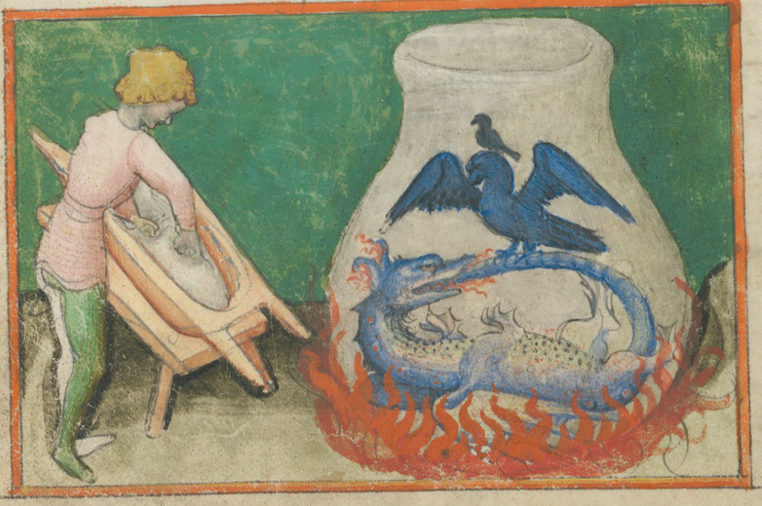If Earth is indeed Gaia, and we humans are a living part of Gaia, then maybe the living biosphere has something to say to us.
Recall that Gaia, the Mother Earth myth of the ancient Greeks, was reborn in the late 1960s and early 1970s as a modern scientific paradigm that sees the Earth as a dynamic living system.
Gaian science revolves around the idea that the earth’s oceans, atmosphere, rocks, and living systems all interact in complex, intelligent ways to self-regulate the biophysical conditions of Earth so that life can flourish.Earth is not just a dead rock hurtling through the universe; it is an always-evolving living system whose many living organisms collectively contribute to its ecological stability for life.
Dr. Stephan Harding has long been a leading scholar of Earth as an animate entity. As a cofounder of Schumacher College (England) and senior lecturer in holistic science, Harding is a pioneering earth scientist who has focused on deep ecology and the theory of Gaia.
His many books often build on the insights of his friend and colleague James Lovelock, the originator of Gaia theory, and on the work of microbiologist Lynn Margulis, who developed the once-controversial idea that symbiosis among living organisms is a driving force in evolution.
In my latest podcast, Episode #27, I talk with Stephan Harding about his latest book, Gaia Alchemy: The Reuniting of Science, Psyche, and Soul, in which he explores how Gaia manifests itself in human consciousness, feelings, and soul. Much of his book focuses on the power of Jungian depth psychology in helping us understand Gaia through the collective unconscious. He also probes medieval history to show how the imagery and observations of premodern alchemists can help us understand Gaia.
While resolutely empirical and scientific in a conventional sense, Harding also dares to explore a larger, neglected story: the mystery of how human consciousness, emotions, and spirituality are embedded in physical matter. He argues that this subjectivity of life is not a side-story or epiphenomenon, but a driving force in the biophysical evolution of life. Many of these arguments are rigorously presented in his previous books, such as Animate Earth (2006, reissued in 2016) .
But in Gaia Alchemy, Harding goes a step further and argues that each of us, as living creatures, are participants in Gaia, and that Gaia has things to say to us if only we would listen. Part of the problem is that we must overcome the human/nature divide that for 400 years has taught us to see nature as a dead object. We must tune into Gaia as a living mystery in which we are immersed.
“The [human] psyche takes part in the wider psyche of nature,” Harding asserts, arguing as a scientist that we must learn to develop a more holistic perception. By using certain techniques used by alchemists, who saw the world as a more integrated cosmos, Harding aims to overcome the dualistic habits of modern thought that separate mind and body, life and matter, and humanity and the Earth.
“Gaia alchemy heals the Cartesian split by making matter and psyche intensively aware of each other as an unbroken wholeness in the unus mundus,” writes Harding. “As fact and image meld within us, an integrated style of consciousness is born – an epiphany happens that combines our deeply buried Indigenous soulful outlook with a modern mentality informed and shaped by the stunning discoveries of the contemporary sciences of the Earth.”
To tune into the life of Gaia, Hardin recommends that we put quantitative empiricism in its place along with conscious logic and rationality. We must learn to listen to the psyche, he writes. “Our culture has forgotten, for the most part, to pay attention to dreams,” he writes in the opening line to his book. We do not take symbols from the unconscious and alchemical images seriously.
Harding freely acknowledges that many aspects of medieval alchemy are “hogwash” by the lights of modern science. However, we moderns forget that many alchemists were the direct precursors of our brand of science. Their attempts to learn how life subsists within matter is not so crazy even though modern science has largely abandoned this line of inquiry.
The question of how life and physical matter are conjoined and integrated remains highly relevant to our times, Harding insists, if only because the mind cannot exist without the body or the rest of nature and life. The mind’s hubris and narrow forms of knowledge have encouraged humans to indulge their fantasies of total rational control, and their disregard for other living systems. We very much need to learn about alchemical coniunctio, writes Harding: the blending of two substances that appear to be antithetical to each other, into one unified whole.
In arguing that modern science reconsider the Cartesian split of mind and body, Harding is obviously taking on an ambitious agenda. He argues for a new metaphysics and epistemology for modern science. Given many of the catastrophic consequences that Cartesian thinking has engendered through modern science, capitalism, and modern culture, our very survival as a species may hinge on finding a more integrated, embodied, and life-affirming metaphysics.
You can listen to my interview with Dr. Stephan Harding here.
Teaser photo credit: Depiction of Ouroboros from the alchemical treatise Aurora consurgens (15th century), Zentralbibliothek Zürich, Switzerland. By GAllegre – Zürich Zentralbibliothek, http://www.e-codices.unifr.ch/fr/list/one/zbz/Ms-Rh-0172, Public Domain, https://commons.wikimedia.org/w/index.php?curid=38229740






